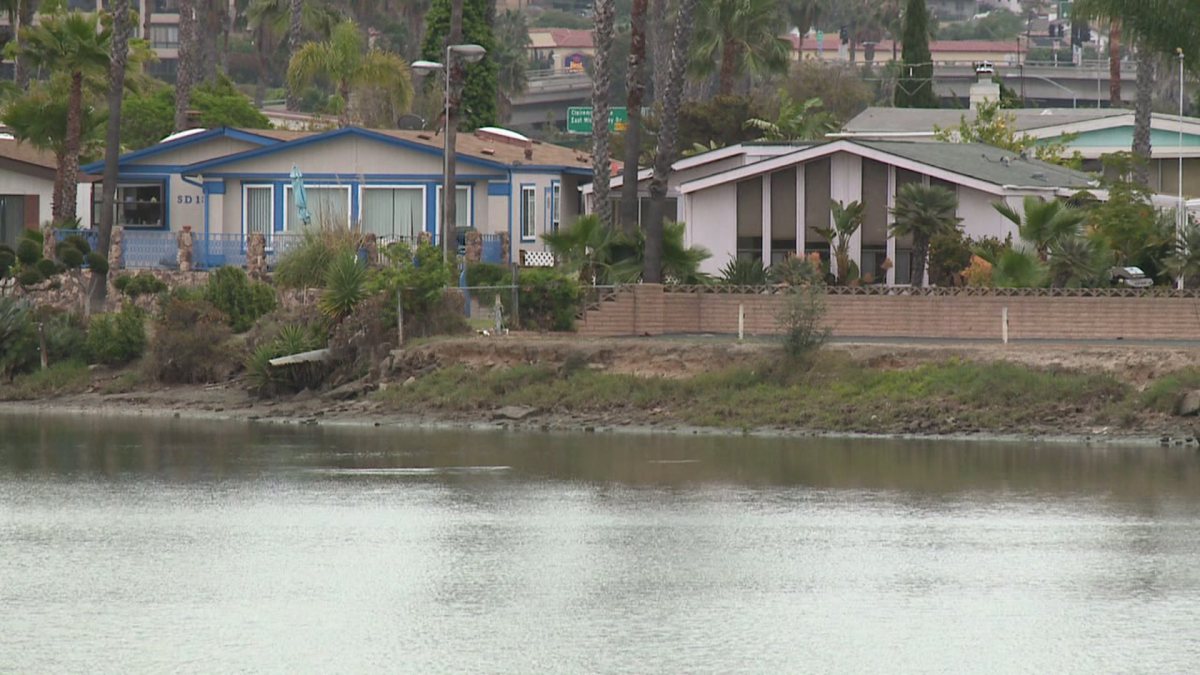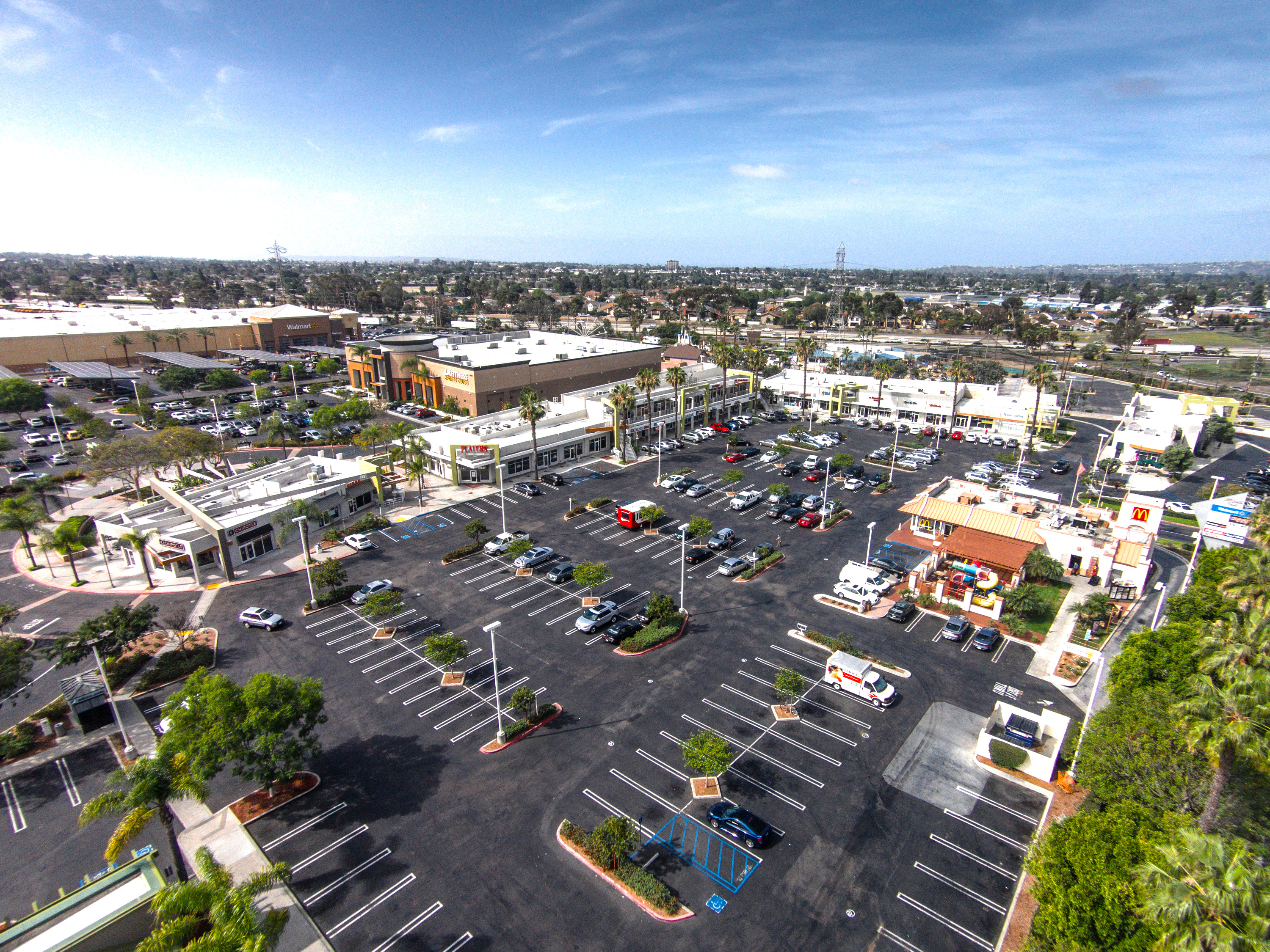Daily Business Report-Dec. 17, 2014
De Anza Cove residences
City and De Anza Cove Homeowners
Settle Case that Dates Back to the 1980s
A legal dispute that began during the Jimmy Carter Administration has been resolved after 35 years, with tenants of the De Anza Cove mobile-home park agreeing to voluntarily depart their Mission Bay residences more than a decade after their original eviction date and the city agreeing to pay them $77,000 per household or $22 million total.
In October, the De Anza Cove Homeowners Association voted to accept the city of San Diego’s terms for settling the case and the City Council approved the
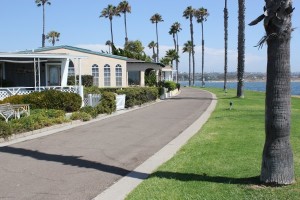
settlement on Tuesday. Both sides agreed to the terms of a Superior Court judgment on the amount and terms upon which the city should compensate the tenants.
Under the terms of the settlement, tenants will move out of the park within a year and receive relocation compensation averaging $77,000 per household, for a total of $22 million.
The legal dispute, which began with a city attorney’s opinion in 1978, spanned 19 City Councils and eight mayors. With the close of this chapter, the property can return to recreational, commercial and educational uses, as intended by state law.
“Mission Bay was never intended to be a mobile-home park,” City Attorney Jan Goldsmith said. “It is an active and accessible public park — the world’s largest water park – and a place for recreation and tourism, for paddle-boarding and picnics. This settlement fairly compensates the tenants who will be displaced, but most importantly it returns to San Diego 76 waterfront acres we never should have lost.”
In addition to compensating the tenants, the city will pay attorney fees equal to one-third of the total amount paid.
Future uses of the property will be decided by the City Council.
Cubic Acquires DTECH Labs
Cubic Corp. announced the acquisition of DTECH Labs Inc., a provider of modular networking and baseband communications equipment based in Sterling, Va., for up to $114.5 million.
“DTECH represents a value investment and adds networking capability to our secure communications business,” said Bradley Feldmann, president and chief executive officer of Cubic.
DTECH’s communications portfolio includes tactical and strategic networking products for portable, man-packable, vehicular and airborne applications. The company is a supplier for Special Operations Command, the U.S. Marine Corps, and other government and commercial customers. Cubic anticipates this acquisition will result in significant growth opportunities.
Napolitano and Marten to Receive
Peacemaker Awards Next March
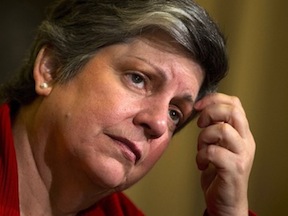
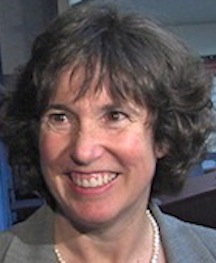
Janet Napolitano, president of the University of California, and San Diego City Schools Superintendent Cindy Marten will receive Peacemaker Awards from the National Conflict Resolution Center during an awards program March 12, 2015 at the Hyatt Regency La Jolla at Aventine.
The event is an annual recognition of those in society who significantly strive to achieve peaceful conflict resolution, and build a civil society in all issues of life.
Napolitano will receive the National Peacemaker Award. Marten will receive the Local Peacemaker Award.
Honorary chairs of the event are Gary and Jeanne Herberger, and dinner event co-chairs are Bill and Dorian Sailer and Steve and Lera Smith.
The National Conflict Resolution Center is an alternative dispute resolution provider based in San Diego.
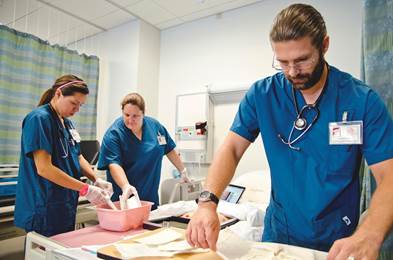
Report: San Diego Community College District
Contributed $5.2 Billion to Regional Economy
San Diego Community College District and its students contributed $5.2 billion last year to the regional economy, up from $4.0 billion in 2012-13, according to a study by Idaho-based Economic Modeling Specialists Intl.
The district’s economic impact is equal to about three percent of the county’s Gross Regional Product, the study said.
The study analyzed spending on college operations, including payroll and purchases, along with the economic benefits of a better educated workforce. The increase in the district’s economic impact on the region is primarily due to a recalculation by EMSI of the contributions of former SDCCD students now in the workforce. In 2013-14 this totals $4.9 billion — up from $3.7 billion estimated by EMSI in 2013.
The district employs 4,568 full-time and part-time employees at City, Mesa, and Miramar colleges, San Diego Continuing Education, and elsewhere. The net impact of payroll and expenses in fiscal year 2013-14 came to $331.7 million, according to the report. The overall effect of the SDCCD on the local economy is equal to the sum of the district operations and the student productivity effect.
Additionally, social savings reduced taxpayer expenses by $186.7 million through lower unemployment, criminal justice, and health care costs.
Among the highlights in the new report:
• The average student who graduates with an associate degree from one of the SDCCD’s colleges will see an increase in earnings of $11,700 each year compared to someone with a high school degree or equivalent. Over a working lifetime, the increased earnings will amount to an added total income of approximately $421,200.
• The SDCCD’s former students generated $4.9 billion last year when counting the added income through higher wages, the increased output of businesses that employed the students, and the multiplier effects that occurred as students and their employers spent the added money on other goods and services.

California Needs 11 Trillion
Gallons of Water to End Drought
For the first time, scientists used data from satellites to calculate what it takes to end a drought.
For California, it’s a sobering statistic: 11 trillion gallons or about 30 million acre feet. That’s around 1.5 times the maximum volume of the largest reservoir in the United States, according to NASA.
The finding was released by NASA scientists at the American Geophysical Union meeting in San Francisco. Water scientist Jay Famiglietti with NASA’s Jet Propulsion Laboratory led a team of scientists that made this calculation. He said the new research can be used to inform water management decisions in the state.
“We have a target that we can shoot for, now the next step is to really work on quantifying when it rains a certain amount how much of that can actually end up in storage,” Famiglietti said.
NASA scientists also released an equally grim picture of the amount of water in the Sierra Nevada snowpack in early 2014.
Data from NASA’s Airborne Snow Observatory indicated that the snowpack was only half of previous estimates and the worst since 1977.
— Capital Public Radio
Stath Karras Elected Chairman
Of Connect Board of Directors
Stath Karras, executive managing director of Cushman & Wakefield, has been elected chairman of the board of directors of Connect by the organization’s board of directors. Karras succeeds Paul Laikind, president and chief executive officer of Viacyte, as board chair. Laikind steps down from the chairmanship of the board after three years as chair and will remain on the board of directors.
Karras has more than 30 years of experience in the real estate industry, including 19 years with Burnham Real Estate Services, where he served as president and chief executive officer. Karras has been on the CONNECT board for nine years and serves on the executive, audit, and nominating committees of the board.
Karras has served on the boards of the San Diego Regional Chamber of Commerce, LEAD San Diego, San Diego Performing Arts League, Better Business Bureau and San Diego Commercial Real Estate Association, and chairman for the San Diego Regional EDC.
UC San Diego Receives $3 Million Grant
To Help Advance Energy Storage Systems
UC San Diego has been awarded $3 million by the U.S. Department of Energy’s Advanced Research Projects Agency-Energy to help move innovative energy storage technologies out of the lab and into the market. UC San Diego will help test and validate the performance of ARPA-E-funded technologies through a program called Cycling Hardware to Analyze and Ready Grid-Scale Electricity Storage.
Often called the “holy grail” of clean energy, energy storage is considered key to modernizing the nation’s electric grid. Increased grid storage would improve operating capabilities, enhance reliability and enable the cost-effective integration of increasing amounts of renewable and distributed energy sources.
Energy storage is considered so important that the California Public Utilities Commission decided last year to establish an unprecedented energy storage target: 1.3 gigawatts of energy storage is to be procured and installed by three of the state’s investor-owned utilities by 2024.
To undertake this project, UC San Diego assembled a team representing a wide span of disciplines in research experience and energy storage. Team members are William Torre, energy storage systems program director at UC San Diego’s Center for Energy Research; Shirley Meng, associate professor of NanoEngineering at the Jacobs School of Engineering; Graham Elliott, professor of economics in the Division of Social Sciences; and Byron Washom, director of strategic energy initiatives.
USD Social Innovation Challenge Enters Fifth Year;
Total of $75,000 Available to Local Students for Social Ventures
The University of San Diego’s Center for Peace and Commerce, a collaboration of the School of Business Administration and the Joan B. Kroc School of Peace Studies, has opened registration for the fifth annual Social Innovation Challenge.
In the Social Innovation Challenge, students create transformative ideas to solve social, economic, environmental and other problems in the U.S. and around the world. Since its inception in 2010, the program has awarded more than $150,000 to students with innovative ideas to change the world and make a positive impact on the 4Ps: people, planet, profit and peace.
Due in part to a grant from the Moxie Foundation, the Social Innovation Challenge will award a total of $75,000 as seed money to student-created social ventures. Up to $35,000 of this funding will be available to San Diego County university students from universities other than USD who will be entered in the “San Diego Track.”
Complete eligibility details are available at www.sandiego.edu/cpc/sic/terms.php.
Past student projects have resulted in innovative solutions for homelessness in San Diego, educational tools for autism, concrete ways to reduce environmental waste, leadership development for deaf youth in Africa, programs serving refugees, applications to promote volunteerism abroad, and more.
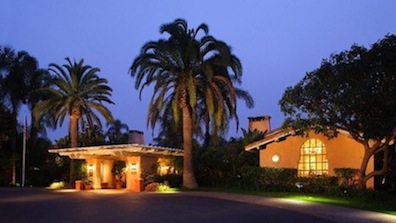
Rancho Valencia Resort & Spa Makes
Conde Nast Traveler’s Favorite Hotels List
The Rancho Valencia Resort & Spa in Rancho Santa Fe has made Conde Nast Traveler’s 2015 “Gold List” of the editors’ 100 Favorite Hotels In The World.” The resort is one of only eight California hotels that made the list.
“A prerequisite for a Gold List property is a high standard of service, luxury, and beauty,” the magazine states. “Yet what earned each winner a spot on the list was the unforgettable special touches that bring a hotel’s ethos to life. The housekeeper at the Belmond Hotel Cipriani who delivers a message to the tooth fairy after hearing a young guest has lost her tooth, the scent of lavender in the air at the Ojai Valley Inn and Spa, or the feeling of picking a mango from your balcony at Strawberry Hill in Jamaica.”
The other California hotels on the list: Ventana Inn & Spa, Big Sur; The Ritz-Carlton, Half Moon Bay; Chateau Marmont, Los Angeles; Shutters on the Beach, Los Angeles; Sunset Tower Hotel, Los Angeles; Ojai Valley Inn and Spa, Ojai; Hotel Vitale, San Francisco.
First Real-Time MRI-Guided Brain Surgery
For Parkinson’s Disease in Southern California
UC San Diego neurosurgeons are the first in Southern California to implant a deep brain stimulator (DBS) in a patient with Parkinson’s disease using real-time 3D magnetic resonance image guidance.
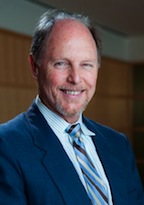
Parkinson’s disease is a progressive disorder of the nervous system that results in unpredictable movements caused by abnormal nerve cell activity in the brain. DBS therapy transmits electrical signals to restore normal activity.
Traditionally DBS surgery is done while the patient is awake. This new approach allows surgeons to continuously monitor the patient’s brain function and ensure accurate placement of the device.
“Now, for some patients, this surgery can be performed in the MRI suite under general anesthesia so that a patient can sleep during the placement of the DBS electrodes,” said David Barba, MD, director of functional neurosurgery, UC San Diego Health System. “Within a few days of DBS therapy, many patients can resume life’s everyday activities.”
Bob Carter, co-director of the UC San Diego Neurological Institute, said the neurosurgeons’ capacity to perform these procedures will be further enhanced in the new A. Vassiliadis Family Hospital for Advanced Surgery at Jacobs Medical Center, which opens in 2016.
Sherri Lightner Named Council President Again
Sherri Lightner was named on Tuesday as president of the San Diego City Council for the second time in a week. Lightner won the post on Wednesday, but she scheduled a revote because allegations surfaced that discussions among various council members might have violated the state’s open meeting law. She succeeds Todd Gloria, who served in the position for two years but was unable to muster a majority of his colleagues to remain in the post.
She said she called for another vote “under an abundance of caution.”
“I want to set a tone right from the start of my tenure as council president that I am strongly committed to being open and transparent, and I will put a particular emphasis on making sure we conduct council meetings consistent with the Brown Act’s goals of public access to all public meetings and to the information on which all decisions are made,” Lightner said.
Assistant City Attorney Paul Cooper said the allegations of Brown Act violations were not substantiated, but if they were, the remedy would have been another vote.
The tally in support of Lightner was 6-1, with Gloria opposed. Councilman David Alvarez, who supported Gloria last week, and Councilwoman Marti Emerald did not attend the special meeting.
The council president wields considerable power over setting meeting agendas, determines committee assignments and often appears with the mayor in a ceremonial role.
Also, the panel voted to make Marti Emerald council president pro tem, the second-highest ranking on the panel, and approved Lightner’s appointments to council committees and outside agencies.
The biggest change for City Council committees is Myrtle Cole replacing Lightner as chairwoman of the Economic Development and Intergovernmental Relations Committee. Lightner will lead a new committee empaneled to recommend sweeping changes to the city charter — suggestions that will go before voters as soon as June 2016.
— City News Service
Chargers Not Moving Out of
Qualcomm Stadium Just Yet
The San Diego Chargers announced Friday that the team will play in Qualcomm Stadium next season, declining again to exercise an escape clause in its stadium lease with the city.
“Today, the Chargers are making the same announcement that the team has made each year since 2007: The team will not be exercising the lease- termination clause and will keep working to find a publicly acceptable way to build a Super Bowl-quality stadium in San Diego,” said Mark Fabiani, special counsel to the team’s president.
“Calendar year 2015 will constitute the team’s 14th year of work on a San Diego stadium solution,” he said.
The Chargers have unsuccessfully searched around San Diego County for a suitable site for a new place to play instead of aging Qualcomm Stadium. Numerous proposals have been floated but none have withheld scrutiny.
Rumors have come and gone over the years that the team would move to Los Angeles.
The Chargers have a window each year to announce whether the escape clause will be exercised.
— City News Service
San Diego Makes First Step to Open Data
The City Council on Tuesday unanimously passed a policy for open data that will make information about San Diego and the municipal government more readily available to the public.
Councilwoman Sherri Lightner said the policy — designed to make things like databases, maps, graphs, lists, charts and tables available to residents online — will spur economic development, make city operations more transparent and enable “participatory government.”
The policy was developed by the city’s Open Data Advisory Group, which is made up of representatives from San Diego’s technology community, the city’s Independent Budget Analyst and employees with the City Council offices of Mark Kersey and Lightner, among others.
The city’s recently hired open data officer, Maksim Pecherskiy, told the council that city data is currently scattered, held within closed systems, and needs to be accessed via expensive proprietary software.
The idea is to consolidate the information so that it can be put into user-friendly forms, Pecherskiy said. He said an example of a benefit of the policy is that businesses will have data to evaluate when deciding where in the city to open new locations.
“This is something that really is going to have a big impact, not only on the local economy in terms of start-ups that are able to take advantage of this vast quantity of data that this city warehouses, but also potentially nonprofits, good-government groups, transparency advocates as well as the city itself — internally,” Kersey said.
While an initial inventory of data sets held by various departments could increase the workload on employees, the policy should ultimately ease workloads, increase efficiency and foster more collaboration between city employees, Kersey said.
Pecherskiy said the city could begin publishing the data by July 2016.
The plan was endorsed by two nonprofit groups — Code for America and Open San Diego.
— City News Service
San Diego Sets Tourism Records
Visitors traveled to San Diego in record numbers in 2014, booking more hotel room nights, spending more money and paying more in tourist taxes than they have in any prior year, the U-T San Diego reports.
Figures released Tuesday by the San Diego Tourism Authority show that 33.8 million out-of-towners visited America’s Finest City this year, spending $9 billion on lodging, food, entertainment and travel. In all, they stayed a collective 16.2 million room nights and generated $244 million in transient occupancy tax revenue. The increased demand from tourists capped a year of employment growth in the leisure and hospitality industry, boosts in consumer confidence and continued progress in the overall job market.
Personnel Moves
Diversity Scholarship Recipient
Hired by Higgs Fletcher & Mack
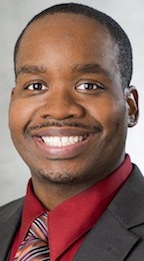
Higgs Fletcher & Mack announced the hiring of its newest associate — its 2014 sponsored University of San Diego Diversity Scholarship recipient, Vernon Evans. Evans becomes Higgs’ 74th attorney and will work with Stephen Pelletier on his business and tort litigation practice that includes real estate, environmental law, product liability disputes, contract law and construction litigation.
Evans graduated from the University of San Diego School of Law in May with a concentration in business and corporate law and achieved many honors from the Western Regional Black Law Students Association, including first-runner up for the Frederick Douglas Moot Court Competition and Best Respondent Brief. He earned his bachelor’s degree in political science from UC Berkeley.
Prior to joining Higgs as a law clerk, Evans was a judicial extern to Judge John A. Houston.

